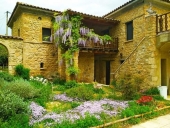posted 5 months ago
Hey Jack,
I might be able to help. I have 15 plus years working professionaly in CR around these topics. You can see our company here, www.porvenirdesign.com.
There laws around this are a bit confusing and vary region by region. Here is what I can say
-there are government databases that show the land use classification. If it says forest cover (secondary or primary ) or wetlands then there are restricitons.
-there are other layers in these databases that should be taken into consideration such as if you are in a biological corridor
-if you are buying land that is an exiting forest it is challenging to legally do much besides thinning and some use of trees for timber. It is a very case by case basis and requires permits, etc. CR has good laws to protect the forests but not much flexibility to be creative.
-many people ignore these laws and cut trees, clear land anyways. In some parts of the country this is easier to do without any challenges. Today though the laws are much more enforced and there is big pushback against illegal clearing of land.
-for getting permits to thin/remove trees, it depends on the diameter of the trees, species (various by region), and how they will be dealt with after cutting (if you remove them from the property for any reason permits are much more complex).
It is possible to do all sorts of things within the forest, perhaps everything you want, but the permitting process gets cumbersome. If you are just trying to create a small homestead, not make a larger project (hotel, rentals, subdivision, then it becomes simpler.
Most people, partially because of this, purchase degraded pasture land. We actually rarely run into major problems because of the above restrictions, rather most of our clients deal with set backs/restrictions around water.
In the end we work with forest engineers who have backgrounds in legal due diligence for projects that touch upon the most complex versions of the conversation above. Feel free to reach out and we can connect you to the folks we work with.
Saludos
Scott
Co-Director and Farm Manager
Rancho Mastatal, Costa Rica




